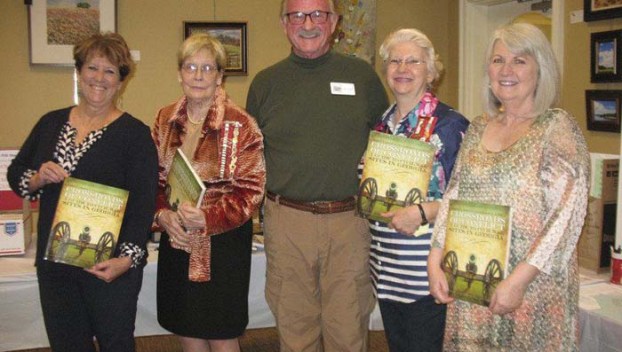
Lifestyles
Books donated to UDC
Jerry Connell, guest speaker for John B. Gordon Chapter 383, presented four non-fiction books to several members who ... Read more

Jerry Connell, guest speaker for John B. Gordon Chapter 383, presented four non-fiction books to several members who ... Read more

Jerry Connell, from Adel, was guest speaker at the John B. Gordon Chapter 383’s meeting. He presented a ... Read more